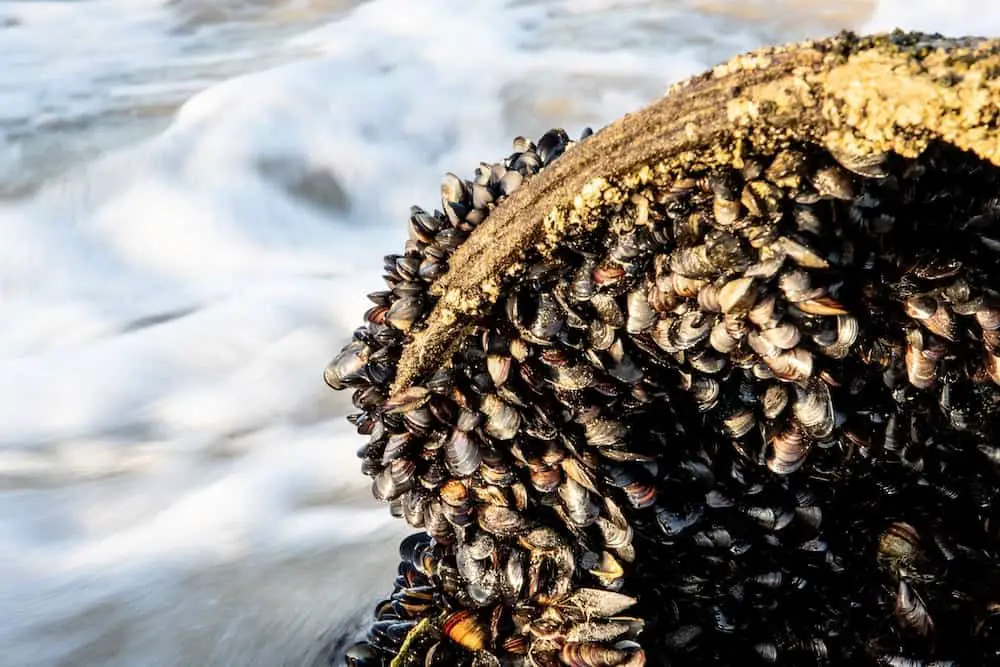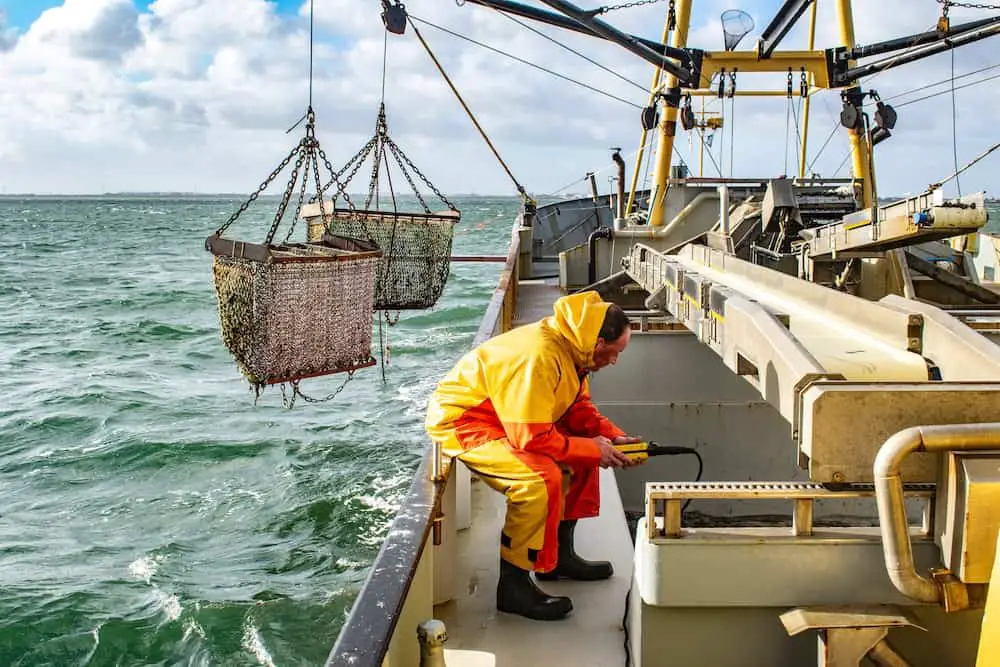Mussels are a popular food dish because they are easy to make and hold a lot of essential nutrients.
One issue that many people seem to have with mussels is whether the mussels are still alive when they’re cooked – and is it cruel?
Many people do not consider eating mussels as cruel because evidence suggests that these bivalves lack a central nervous system and do not feel pain. Since mussels are mainly farmed, the collection of mussels for food does not cause damage to the environment and is considered humane and sustainable.
If you believe in living a cruelty-free life and want to spread the message, please read on about the delicate lives of mussels and other marine life and how you can make choices that are in harmony with them.
Mussels: Are They Alive?
Mussels are interesting specimens that are definitely living beings. But they don’t have a brain. Instead, they have something called ganglia which helps them get their systems to function and respond when it needs to.
Mussels may not have the most developed thought process, but they are active enough to be classified as animals. But is it enough to protect themselves from danger?
Can Mussels Sense Danger?
Although most people wouldn’t think so, mussels actually do have the capability of sensing danger.
Say a hungry crab is nearby, a mussel can sense a chemical change in the water by its presence. If the mussel picks up on this chemical change, it will try to thicken its shell – even if it takes a long time to do so.
Luckily, the shell on the bivalve is already enough to ward off potential predators, though, as most predators don’t want to take the time to pry the shell open or try to break the shell.
Another common bivalve that has similar characteristics to mussels are oysters. But one of the main differences is that people like to eat them alive. You can find out whether this practice is cruelty-free here: Is it Cruel to Eat Oysters?
Can Mussels Tell When A Human is Nearby?
Mussels rely on a chemical change in the water to detect the presence of a typical predator. Humans do not emit this type of chemical change that mussels can pick up on, so it is highly unlikely that
they can sense the presence of a person.
Cruel or Not, Why Eat Mussels at All?
Besides being tasty, mussels do contain a lot of nutrients – which is why it’s such an appealing choice to people. On the other hand, you can also find these same nutrients from plants or supplements if you don’t eat fish.
Mussels Are Packed with Nutrition
Everyone worries about the amount of nutrients and vitamins they’re consuming and whether or not it’s the right amount. Nowadays, it’s all about convenience, which ironically can be an inconvenience when it comes to your diet.
If living a life with a balanced diet without risking all of your time for it sounds like a wonderful idea to you, then trying out mussels may benefit you more than you might think. Here’s the nutrition that the blue-n-black-shelled bivalves hold for you:
As you can see, mussels can provide a much-needed amount of nutrition to your diet. Though there are plenty of health benefits to mussels, there are also a few health hazards to be aware of.
The Not-so-Nutritional Side of Mussels
Even though there are many health benefits to mussels, there are some downsides, too, unfortunately. Here are some potential risks that come from munching on that you need to be aware of:
So, to set the record straight, mussels are not a “perfect” food.
Should Vegans or Vegetarians Eat Mussels?
Mussels, or any bivalves, are classified animals in the Animalia Kingdom and are NOT vegan-friendly. Vegans and vegetarians should avoid eating any bivalve.
Anything that is a part of the animal kingdom is an animal. This includes seafood like squid, octopus or lobster too. If you don’t eat animals, you typically do not eat mussels.
The Farming of Mussels Isn’t Inhumane
The way that mussels are caught is safe and responsible. These sea creatures are not collected inhumanely but instead use a specific method that guarantees safety and sustainability for all lives.
Aquaculture: A Humane Way to Farm Sea Life
Believe it or not, there is such a thing as farmers for the ocean, who use a method called aquaculture.
Also known as aquafarming, aquaculture is the farming of fish, crustaceans, molluscs, aquatic plants, algae, and other organisms.
The concept of aquaculture is similar to agriculture in the way that they use a controlled process to cultivate aquatic organisms. Rather than based on livestock and plants, it’s based on fish and aquatic life.
Aquafarming is a very beneficial system because it's considerate of the mussels, the environment and humans as well.
Farmers can keep up with the high demand of mussels while running an environmentally friendly establishment that is sustainable for sea life.
Aquafarming can be beneficial to the lives being farmed and the environment and humans as well. It produces enough product to keep up with the demands while staying environmentally friendly and sustainable for sea life.
How Mussels Are Farmed
Mussels take about a year to farm, which may seem like a long time, but the process is simple and easy.
The farmers will find and collect a few mussel seeds, then put them into a square mesh tube around a long rope. The sock with the rope is then connected to buoys. This is then dropped into the water and left to grow in the ocean for a year.
You can read more about the process or watch the video here: Building Good Mussels
Is Mussel Harvesting Always Humane?
Though the information above may sound like a positive and friendly way to grow and collect mussels, there are some negative aspects to consider too:
The pros and cons of bivalve harvesting make it difficult for many to decide one way or another, whether it is a practice to support or discourage.
Final Thoughts About Mussel Farming
When we think about consuming any animal, what matters most when determining whether something is cruel or not is whether the animal is being treated fairly and kept in good condition and how the food production affects the environment.
Research points toward mussels being a very sustainable and eco-positive food. So, the production of mussels isn’t cruel to the environment. Whether raising bivalves as a crop and killing them for food is cruel to that animal or not – that depends on each consumer's ethical standards.


